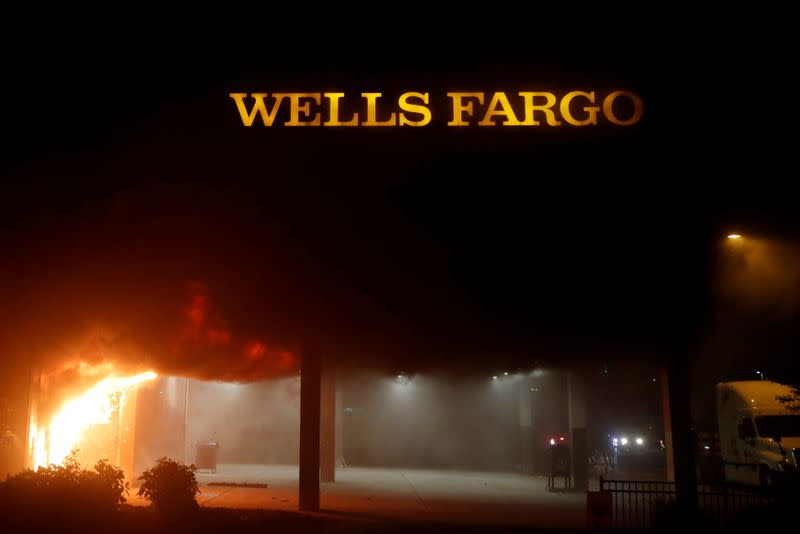Wells Fargo scores the latest narrow win for CEO pay
By Ross Kerber and Sohini Podder
(Reuters) -Wells Fargo & Co's executive pay plan for 2020 received backing from only about 57% of investor votes on Tuesday, a narrow win for the company and the latest evidence of tougher scrutiny shareholders have put on CEO compensation this year.
CEO and President Charles Scharf was paid $20.4 million in 2020, down from $34.3 million in 2019, when he was first named to lead the bank, according to its proxy statement filed in March. On an annualized basis his total direct compensation in 2020 fell about 12% from $23 million the prior year, according to a January filing.
The board cited the drop in Wells Fargo's financial results for 2020, which were hit by the COVID-19 pandemic, as one of the reasons for the lower compensation.
But the adjustments were not enough to satisfy investors, whose support for executive pay averages around 90%; levels much lower usually bring changes.
Influential proxy advisor Institutional Shareholder Services recommended that investors vote against the pay of leaders at the San Francisco-based bank. It cited concerns including relatively high salaries for top executives, the pay discretion given to its compensation committee, and a decline in use of performance-based stock awards.
A Wells Fargo spokeswoman said via e-mail that its directors "will take into consideration the feedback that we have heard through this process, and we will continue our engagement and dialogue with our shareholders going forward."
The bank gave the figure of 57% pay support during its annual meeting Tuesday, which was webcast. The spokeswoman said the figure included votes cast for and against the pay, and abstentions.
Pending a final tally, the vote would be among the lowest for a major U.S. bank in the decade since pay votes were required, according to a separate review by ISS.
The result was only the latest rebuke from investors against a major U.S. company during this year's proxy season. Just on Monday, Johnson & Johnson also won narrow backing for its executive pay, for instance[nL1N2MJ2T8]
Data from Farient Advisors shows among S&P 500 companies with votes so far this year, 9 won below 80% support for their executive pay, compared with just 3 last year among the same group.
Farient Vice President Eric Hoffmann said while it is early to draw broad conclusions, investors may be punishing companies that used discretion or tweaked pay arrangements during the pandemic.
Investors "hate it when boards override plans they put in place," Hoffmann said.
(Reporting by Sohini Podder and Noor Zainab Hussain in Bengaluru and by Ross Kerber in Boston; Editing by Shinjini Ganguli, Alexander Smith and David Gregorio)

 Yahoo Finance
Yahoo Finance 

